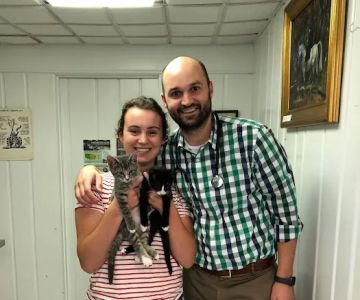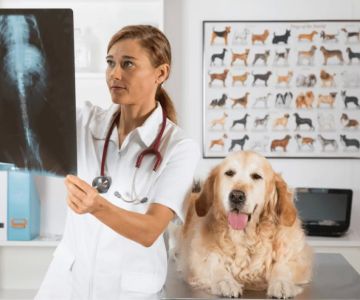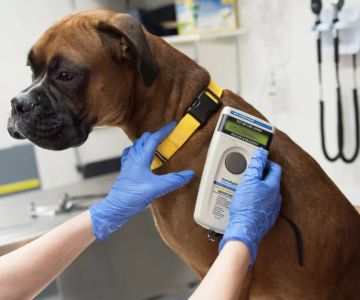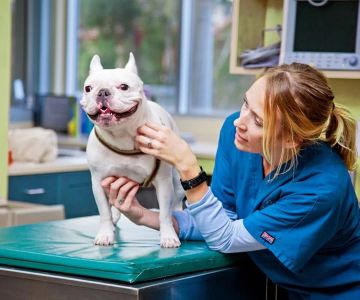Can You Get a Degree in Veterinarian Medicine? Your Guide to Becoming a Vet
- 1-Understanding-veterinarian-medicine-degree
- 2-Educational-pathways-to-becoming-a-veterinarian
- 3-The-veterinary-school-experience
- 4-Real-life-story-of-a-veterinary-student
- 5-Career-opportunities-with-a-veterinarian-degree
- 6-Taking-the-next-step-towards-a-vet-career
1. Understanding Veterinarian Medicine Degree
Yes, you can get a degree in veterinarian medicine, which is formally called a Doctor of Veterinary Medicine (DVM) or Veterinary Medical Doctor (VMD) degree. This degree is the essential credential required to practice as a licensed veterinarian in the United States and many other countries.
The veterinarian medicine degree combines scientific knowledge, clinical skills, and practical experience to prepare students for the complexities of animal healthcare.
The Scope of Veterinarian Medicine Education
This degree covers subjects such as anatomy, physiology, pharmacology, pathology, surgery, and animal behavior. Students also learn about public health, epidemiology, and veterinary ethics, which are critical for a well-rounded education.
2. Educational Pathways to Becoming a Veterinarian
The journey starts with completing a bachelor's degree, often in biology, animal science, or a related field. Admission to veterinary school is competitive, requiring strong academic records and relevant experience with animals.
Once admitted, students undergo a rigorous 4-year veterinary program culminating in the DVM or VMD degree.
Prerequisites and Entrance Exams
Applicants must complete prerequisite courses such as chemistry, physics, and biology. The Veterinary College Admission Test (VCAT) or Graduate Record Examination (GRE) scores may also be required depending on the school.
3. The Veterinary School Experience
Veterinary school is demanding and includes classroom learning, laboratory work, and clinical rotations. Students gain hands-on experience diagnosing and treating animals under supervision, preparing them for real-world challenges.
Schools also emphasize communication skills, as veterinarians must interact with pet owners and other professionals effectively.
Licensing and Certification
After graduation, passing the North American Veterinary Licensing Examination (NAVLE) is mandatory to practice. Some vets pursue specialization through residencies or certifications in fields such as surgery, internal medicine, or exotic animals.
4. Real-Life Story of a Veterinary Student
Meet Anna, a recent graduate from a top veterinary school in California. Anna’s passion for animals began in childhood, volunteering at shelters. Her journey through vet school was challenging but rewarding—balancing intense study with clinical work.
Today, she works in a mixed-animal practice, caring for pets and farm animals, demonstrating how the veterinarian medicine degree opens diverse career paths.
5. Career Opportunities with a Veterinarian Degree
With a degree in veterinarian medicine, career options extend beyond private practice. Veterinarians work in research, public health, wildlife conservation, pharmaceutical development, and government agencies.
The demand for skilled vets continues to grow, reflecting society’s increasing commitment to animal welfare and health.
6. Taking the Next Step Towards a Vet Career
If you’re inspired to pursue a veterinarian medicine degree, start by researching accredited veterinary schools, preparing academically, and gaining animal experience.
For tools, study aids, and guidance on vet school applications, visit our site where we recommend the best resources to support your path.
Embarking on this journey means stepping into a rewarding career dedicated to the care and health of animals worldwide.












